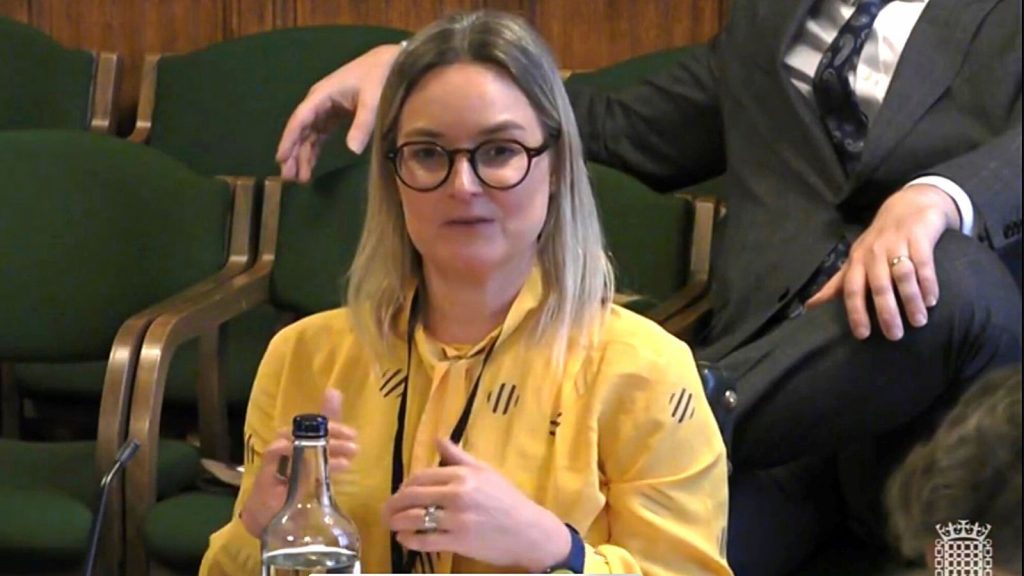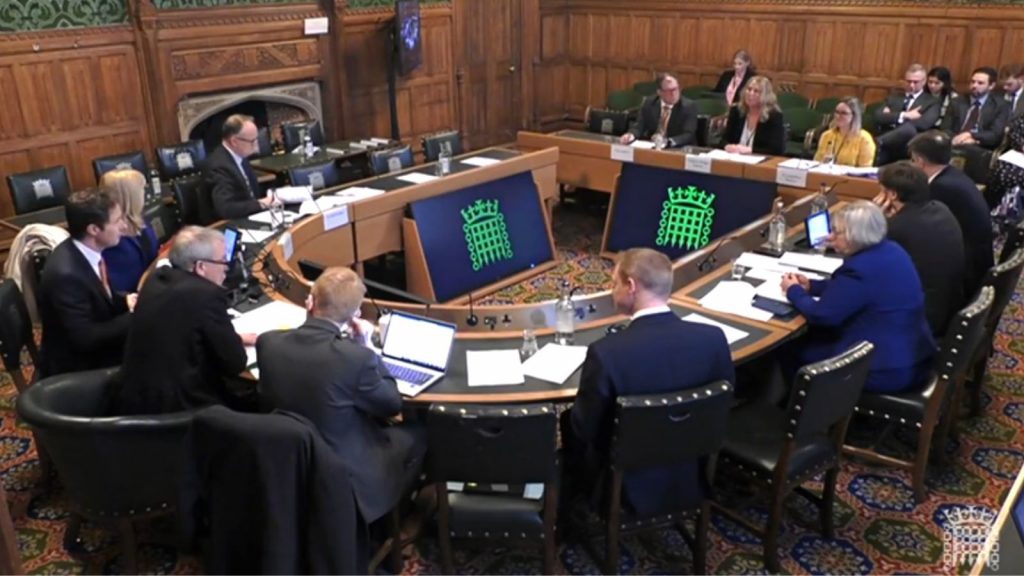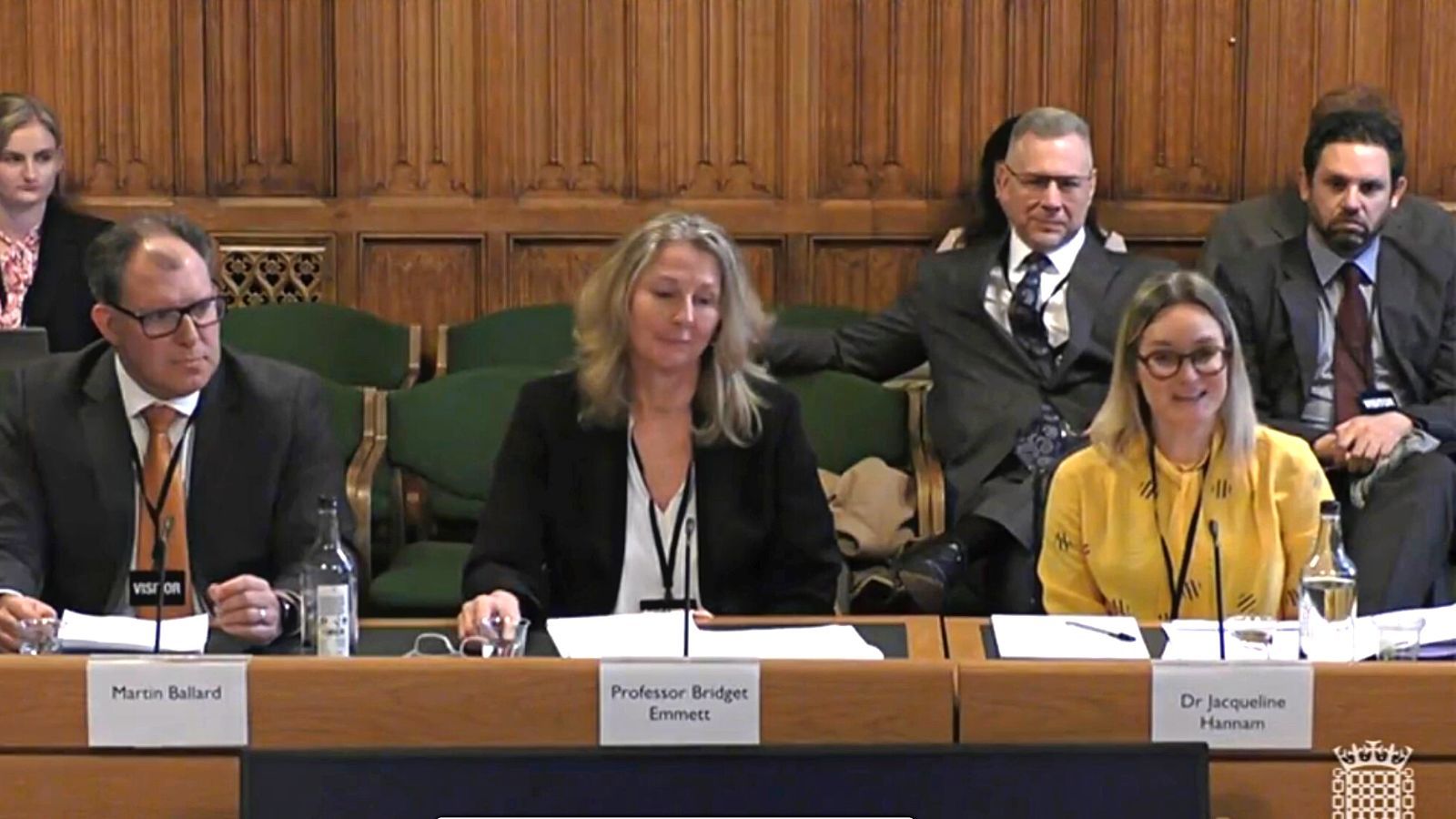British Society of Soil Science President, Dr Jack Hannam, joined the Environment, Food and Rural Affairs Commons Select Committee on Tuesday 7 March 2023, to discuss Soil Health.
Further to the Society’s evidence submission, Jack joined fellow panellists Prof Bridget Emmett, representing UKCEH and having been a special adviser to the 2016 Inquiry, and Martin Ballard with construction and water experience and representing the Society for the Environment.
To begin, the panel set out the importance of soil health in mitigating climate change, supporting ecosystems, in food production and with 25% of all global diversity in the soil. Early in the discussion, it was agreed by all panellists that the scope of the Inquiry should include all types of land use, not just agriculture, including the 5% of UK land which is domestic gardens.
There was significant discussion around payment schemes for farmers, with Jack highlighting that carbon storage would need to be monitored over the long-term and it would take five years before changes would likely be seen.

Soil is the main asset many farmers have, and the panel supported the need for regular monitoring by farmers to assess the baseline and changes that should be made in future. In the same way that a car needed to be MOT’d annually, Bridget Emmett suggested farmers should undertake the same regular testing and monitoring of their soils.
There were opportunities to deliver this through existing schemes such as the Sustainable Farming Incentive and it was suggested that to support soil health improvement, farmers’ soil management plans could be undertaken first, before a subsidy to deliver it was given.
The panel agreed that the UK should follow in the footsteps of nations such as Australia, by setting a soil strategy. This would view soils as an asset, like air and water, and provide better protections. The panel agreed that this was the first step, with existing voluntary activities and incentives being delivered via the strategy, with in future, regulation being introduced to provide soils with the same protection as air and water.
As part of the strategy, setting clear targets which can be measured and monitored, and which was committed to over the long-term, would ensure progress could be demonstrated.

Long-term, thought would need to be given to how national monitoring and the local, land-owner led monitoring could come together to provide an overall picture of UK soil health. Engaging land-owners to provide this data was felt particularly important as up to 70% of land degradation impacts are felt off the farm boundaries.
To provide land-owners with the support for management, monitoring and the impact this would have on other areas of operation, panel members supported the need for wide-scale education and training to provide the information needed to enable the change.
Risks for soils across all land use were discussed, including microplastics and the need to draw these out of biosolids in particular. With contaminated soil often being sent to landfill, the panel agreed that there were methods to remediate it and regulation should support this, although there was a view that Local Authorities did not have the skills to support remediation.
The panel was followed by a second panel including representatives from organisations Client Earth, Sustainable Soils Alliance and CPRE the Countryside charity. Recordings and transcripts from both sessions can be found on the Government website.





